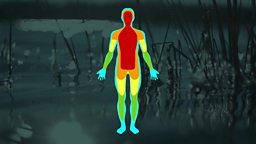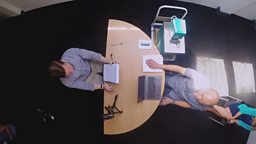What can you do to avoid Jet Lag?
Most of us are familiar with the unpleasant feeling we call ‘jet lag’ – the disruption to our body clock when we fly to a place several time zones away. The sensation that time difference gives you has a medical name: desynchronosis.

For many people the most obvious symptom is disrupted sleep. Other symptoms include indigestion, constipation, nausea, disorientation, headaches, memory loss, muscle soreness, sweating, or a general feeling of being unwell.
The underlying cause of desynchronosis is complex. We don’t just have one body clock, we have many (in fact every single cell in our body has a time-keeping mechanism), and they all need to be in sync to keep our body working well. As well as influencing when we sleep, these multiple body clocks also affect other processes in our body such digestion, temperature and blood pressure.
All our body’s clocks are coordinated every day by a ‘master bodyclock’ in our brain, the suprachiasmatic nucleus, or SCN - which is kept on track by daylight.
If you fly to a new time zone, the SCN is rapidly reset, but it can take much longer for the message to be communicated to all the other clocks in our organs and cells, meaning different parts of your body are out of step and you feel awful.
Our body clocks naturally want to run slightly longer than 24 hours. Travelling west tends to result in less severe jet lag than travelling east, because your day becomes longer when travelling west. When you travel east, your day gets shorter, which is more difficult for your body clocks to adjust to.
To work out roughly how long your jet lag will last, count one day for every time zone you travel through.
So, is there anything you can do to avoid jet lag, or lessen its severity?
- Your SCN is set by light, so daylight will be the most effective way to reset to the new time zone. If you’re arriving during daylight hours, keep the window-blinds on the plane open, and try to stay up until it’s dark, even if you’re tired.
- If you’re arriving while it’s dark, you need to get your body ready for sleep earlier, so avoid light. Exposure to light makes your body produce less melatonin, a hormone that helps you sleep better. This is especially true of blue light (such as early morning daylight) or the light from your electronic devices, so to encourage sleepiness, avoid too much screen-watching.
- For serious jet lag, to help you sleep at night your GP might prescribe melatonin tablets (to people over 55 only).
- Sleeping pills can help, but they are not recommended for long periods.
- Recent scientific research shows that it’s not just light that affects our body clocks, but also food. Our meal times will sometimes override other signals. So when you get on the plane, or even before you travel, try to eat your meals at the appropriate time for your new time zone.
- Tempting though the free wine might be on some long-haul flights, alcohol will disrupt your quality of sleep. It can also dehydrate you or lead to a hangover, which can significantly exacerbate jet lag symptoms.
Unpleasant though it may feel at the time, there is no evidence that jet lag causes any long-term health problems.





























